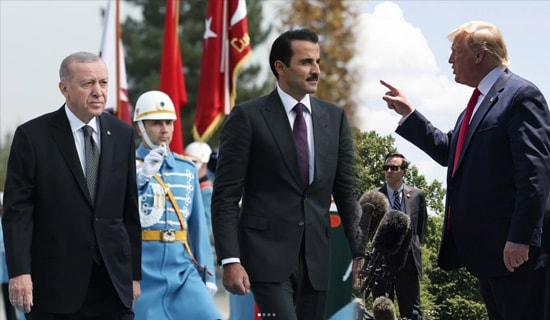On May 15, 2011, Palestinian Authority President Mahmoud Abbas signed a presidential decree amending the penal law for "family honor" murders. The murder of women under circumstances of family honor violations will henceforth be considered a murder like any other.[1]
Following are reactions to the amendments from the Palestinian press:
Columnist in PA Daily Al-Ayyam: "We Must Demand the Death Penalty for the Murderers"
Abbas's signing of the decree amending the law comes against the backdrop of the murder of Aya Al-Baradh'iya, a student from Surif village in the Hebron Governorate, by her uncle and his friends, on suspicion that she was having forbidden contact with a young man who had proposed marriage. Aya's body, blindfolded and with hands and feet bound, was discovered in a well on May 7, 2011, about a year after her disappearance; her uncle confessed to murdering her.
The discovery of Aya's body sparked outrage across the Hebron region. Many openly condemned the murder and called for the perpetrators to be prosecuted to the full extent of the law and given the harshest possible sentence, with some even demandeing that they be sentenced to death. Rami Mahadawi, columnist for the PA daily Al-Ayyam, wrote: "The blood of your daughter Aya is precious, and there is no compensation for it but blood [vengeance]. We must demand the death penalty for the murderers, as a lesson for all to see."[2]
Column in Al-Quds: "Demands that [Aya's] Bestial Murderer be Sentenced to Death… are a Positive Development, but an Insufficient One"
In his column in the Jerusalem daily Al-Quds, Hamdi Faraj described previous family-honor murders in which the perpetrators went unpunished: "We saw the covered body of a woman; her head was severed from her body. She had been murdered by her brother, who claimed [that she had violated the family's] honor. He was detained for several months, and then released...
"Several months ago, a teenage girl was murdered by her uncle, after he had sexual relations with her...
"There is a long history of murders that are justified by claims of [violation of] family honor. The murderers receive light sentences, and perhaps even win admiring glances from the sheikhs...
"The demands that [Aya's] bestial murderer be sentenced to death, and that the family receive a bereavement visit from the Legislative Council chairman are a positive development, but an insufficient one."[3]
Columnist for Maan: "In Our Times, the Woman is Beaten, Humiliated, and Murdered Without Trial"
'Aziz Al-'Asa, columnist for the Maan news agency, wrote: "The Aya Al-Baradh'iya affair has shaken the very foundations of our humanity. It arouses pain, sorrow, and shame. We still have not managed to free ourselves of the jahiliyya [the pre-Islamic era of ignorance and paganism]."[4]
Another Maan columnist, Bahah Rahal, wrote: "What honor and what character [is this]? What manliness [is this], to murder someone unjustly? What values are these that bury someone in a well? And what is the morality of these people, who cut short the life of a young girl in the spring of her days, with a chilling and horrifying act of murder?... Maiden Aya, may God have mercy on her – a young girl murdered and cast into a well by her uncle, not for any crime, but for falling into the trap of the accursed honor. What honor permits whose uncle murdered her and cast her into a well, not for any crime , not because she committed any crime, but [merely] because she fell into the trap of accursed [family] honor. What honor is this that allows a life, though blameless, to be murdered and buried?"[5]
Also on the Maan website, Osama Abu 'Awwad criticized the victimization of women, writing: "In our times, the woman is beaten, humiliated, and murdered without trial. She is married off against her will, imprisoned at home, and prevented from objecting [to any of this] – all under the cover of backward traditions and customs handed down from generation to generation."[6]
Suha Arafat Praises Abbas
Suha Arafat, widow of Yasser Arafat, wrote in Al-Quds: "We must doff our hats to President Abu Mazen [Abbas], in esteem and respect. He has done what is necessary, [showing] resolve and an ability to make decisions when there is a [national] interest and when he believes in something.
"I know that Abu Mazen is the sort of person who dared to say 'no' to the late great Abu 'Ammar [Yasser Arafat], while others said 'yes'... I appreciate Abu Mazen's courage, and his [willingness] to confront the social legacy, honored tradition, and tribal considerations."[7]




.jpg)